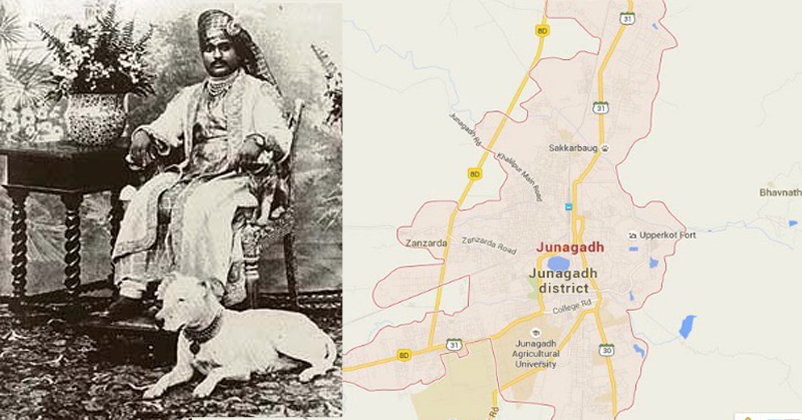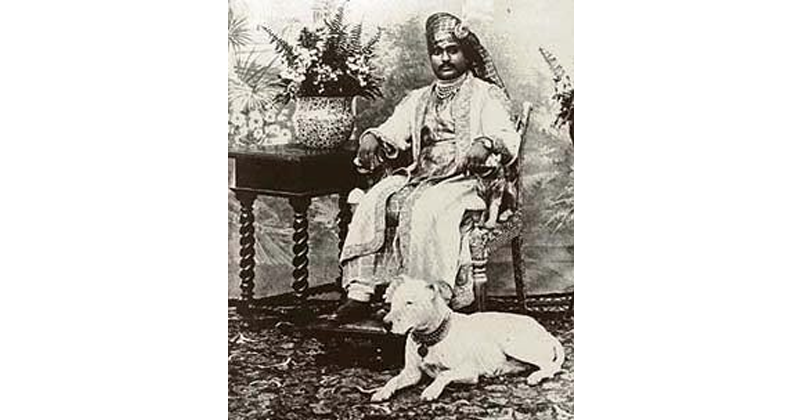Today in History: 8 November, 1947: When Sardar Patel’s diplomatic skills played a crucial role in ensuring the accession of Junagadh to India
08 Nov 2023 11:02:19

The princely state of Junagadh, located in present-day Gujarat, India, formally acceded to India on 8 November, 1947. This decision was significant during the period of India's independence, as it marked the state's integration into the newly independent India, despite some initial controversy and opposition from Pakistan.
Sardar Vallabhbhai Patel also known as 'Iron Man of India’, India’s first deputy Prime Minister and Minister of Home Affairs played a significant role in Junagadh’s accession to India through a combination of diplomatic negotiations, popular sentiment, and a plebiscite. Here's a more detailed explanation of the process:
1. Background: Junagadh was a princely state located on the western coast of India, with a predominantly Hindu population but ruled by a Muslim nawab, Muhammad Mahabat Khan III. Besides the nawab, the other influential individual was the dewan of Junagadh state, Shah Nawaz Bhutto. In August 1947, when India gained independence from British colonial rule, princely states were given the choice to join either India or Pakistan or remain independent. Mahabat Khan Ill initially decided to accede to Pakistan, mainly due to his personal preferences and connections. On 15 September 1947, Jinnah approved and counter signed Junagadh’s instrument of accession.

Nawab of Junagadh
2. Opposition and Controversy: This decision to join Pakistan led to controversy, as the majority of Junagadh's population was Hindu, and there was significant opposition to the Nawab's choice. The people's will was not being considered, and India contested the legitimacy of the accession.
3. Diplomatic Negotiations: Sardar Vallabhbhai Patel, India's first Deputy Prime Minister and Minister of Home Affairs, initiated diplomatic negotiations with the Nawab to persuade him to reconsider his decision. Patel emphasized the need to respect the wishes of the majority Hindu population.
4. Encouraging Popular Resistance: Patel also encouraged and supported the people of Junagadh in their peaceful resistance against the Nawab's decision. This included organizing protests and expressing their desire to join India.
5. International Diplomacy: India engaged in diplomatic efforts to gain international support for its position. Sardar Patel worked on the international stage to ensure that the international community recognized the legitimacy of Junagadh's accession to India.
6. India’s two-pronged approach: As tensions escalated, India took a two-pronged approach. First, it mounted a diplomatic campaign to garner international support for its position. Second, it decided to shut all it’s borders to Junagadh stopping the movement of goods and transport. Nawab couldn’t handle the worsened situation and he left Junagadh for Pakistan on 25 October 1947 leaving dewan, Bhutto as in-charge of the state. Unable to handle the critical situation, the dewan of Junagadh, Shah Nawaz Bhutto wrote to Pakistan for military and financial assistance, which never came. After holding out for over a week, on November 8, 1947, Bhutto offered India to take over the reins of Junagadh. Indian government administrator reached Junagadh on 9 November, only to discover that Bhutto had already decamped for Pakistan.
7. Plebiscite: In February 1948, a plebiscite was conducted in Junagadh to determine the people's preference for joining India. The plebiscite resulted in an overwhelming 99 % majority of the population expressing their desire to join India.
8. Formal Integration: Following the plebiscite and the overwhelming support for joining India, Junagadh was formally integrated into the Indian Union on 20th February 1948.
The integration of Junagadh into India was a significant achievement and highlighted the importance of respecting the will of the people in determining the future of princely states. Sardar Patel's leadership and diplomatic efforts played a crucial role in this process.